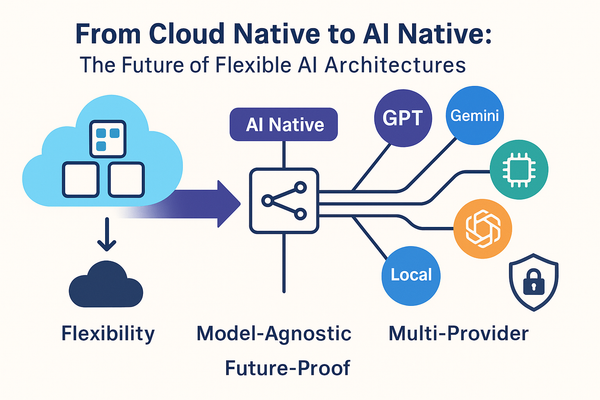DevOps vs GitOps which one should you use?
If you're like most people, you've probably heard of both DevOps and GitOps. But what do they mean, and where do they overlap? In this blog post, we'll explore the differences between DevOps and GitOps, as well as where they intersect.

If you're like most people, you've probably heard of both DevOps and GitOps. But what do they mean, and where do they overlap? In this blog post, we'll explore the differences between DevOps and GitOps and where they intersect.
I'll also discuss the benefits of each approach and help you decide which is right for your business.
DevOps vs GitOps let's go!!
What is DevOps
DevOps is a set of practices that combines software development (Dev) and information technology operations (Ops) to shorten the time it takes to deliver features from idea to market.
DevOps aims to increase efficiency and effectiveness by automating and improving communication and collaboration between developers and operations teams.
Some of the key practices of DevOps include:
- Continuous integration (CI): A practice in which developers regularly merge their code changes into a shared code repository.
- Continuous delivery (CD): A practice in which code changes are automatically built, tested, and deployed to a production environment.
- Infrastructure as code: The practice of managing infrastructure (servers, networking, storage, etc.) using code rather than manually configuring it.
- Monitoring and logging (Observability): Monitoring system performance and collecting log data for troubleshooting and performance analysis.
What is GitOps
GitOps is a new approach to DevOps that uses a Git repository as the source of truth for the system state, and changes to the system are made by pushing code changes to the repository.
Everything in the system, from code to infrastructure to the configuration, is stored in Git. With GitOps, changes are made through pull requests and then deployed automatically using continuous delivery (CD) pipelines. The goal of GitOps is to make it easier for developers to collaborate on code and deploy changes quickly and safely.
GitOps has many of the same practices as DevOps, such as continuous integration and delivery, infrastructure as code, and monitoring and logging.
Where do DevOps and GitOps overlap?
The approaches overlap in several key areas: automation, continuous delivery (CD), and Infrastructure as Code. In addition, both DevOps and GitOps emphasize the importance of collaboration between developers and operations teams. However, there are some key differences between the two approaches.
DevOps emphasizes efficiency and effectiveness by automating and improving communication and collaboration between developers and operations teams. At the same time, GitOps uses a Git repository as the source of truth for everything in the system.
What are the differences between DevOps and GitOps?
However, there are some key differences between the two approaches. First, GitOps uses a Git repository as the source of truth, while DevOps does not. Second, changes in GitOps are made through pull requests, while changes in DevOps are typically made through direct commits. Finally, GitOps emphasizes continuous delivery (CD) pipelines, while DevOps does not.
So, which approach is right for you?
If you're looking for a more collaboration-focused approach that uses a Git repository as the source of truth, GitOps may be the right choice. However, DevOps may be a better fit if you're more interested in increasing efficiency and effectiveness by automating and improving communication and collaboration between developers and operations teams.
FAQ Section: DevOps vs. GitOps—Which One Should You Use?
What is the difference between DevOps and GitOps?
DevOps is a broad set of practices that aim to improve the collaboration between development and operations teams, focusing on automating processes, continuous integration/continuous delivery (CI/CD), and infrastructure as code (IaC). GitOps is a specific approach within the DevOps framework that uses Git as the single source of truth for infrastructure and application deployment. GitOps automates deployments and management through pull requests and Git workflows, making the process more declarative and version-controlled.
When should you use GitOps over traditional DevOps practices?
You should consider using GitOps over traditional DevOps practices when you want to standardize and simplify your deployment processes using Git-based workflows. GitOps is particularly beneficial in Kubernetes environments where declarative infrastructure and continuous deployment are essential. It provides a more structured and automated approach to managing infrastructure, making it easier to roll back changes, track history, and ensure consistency across environments. If your team is already familiar with Git and you need tighter control over your deployment processes, GitOps could be a natural fit.
What are the benefits of using GitOps in a DevOps pipeline?
Using GitOps in a DevOps pipeline offers several benefits, including:
- Consistency and Repeatability: By storing infrastructure and application configurations in Git, you ensure that deployments are consistent across environments and can be easily replicated.
- Enhanced Collaboration: GitOps leverages familiar Git workflows like pull requests and code reviews, making it easier for teams to collaborate on infrastructure changes.
- Improved Security: GitOps centralizes configuration management in Git, providing an auditable history of changes and reducing the risk of unauthorized modifications.
- Faster Rollbacks: In the event of an issue, GitOps allows for quick rollbacks to previous configurations by simply reverting to a previous commit in Git.
These benefits make GitOps an effective strategy for managing infrastructure in a DevOps pipeline, particularly in cloud-native environments.
Can DevOps and GitOps be used together?
Yes, DevOps and GitOps can be used together. In fact, GitOps can be seen as an evolution or extension of DevOps practices. While DevOps encompasses the broader set of practices for automating and improving software delivery and infrastructure management, GitOps focuses specifically on using Git for managing infrastructure and deployments. Integrating GitOps into a DevOps pipeline can enhance automation, consistency, and control, making the overall process more efficient and reliable.
What are the challenges of adopting GitOps?
Challenges of adopting GitOps include:
- Learning Curve: Teams need to become proficient in Git and the GitOps workflow, which might require additional training.
- Tooling Integration: Integrating GitOps with existing tools and systems may require significant changes to workflows and infrastructure.
- Complexity in Non-Kubernetes Environments: While GitOps is highly effective in Kubernetes, implementing it in non-Kubernetes environments can be more complex and may require custom solutions.
- Cultural Shift: Adopting GitOps may require a cultural shift towards greater collaboration and code review practices, which can take time to fully implement.
Overcoming these challenges involves proper planning, training, and gradually introducing GitOps practices into the existing DevOps pipeline.
Follow me
If you liked this article, Follow Me on Twitter to stay updated!



